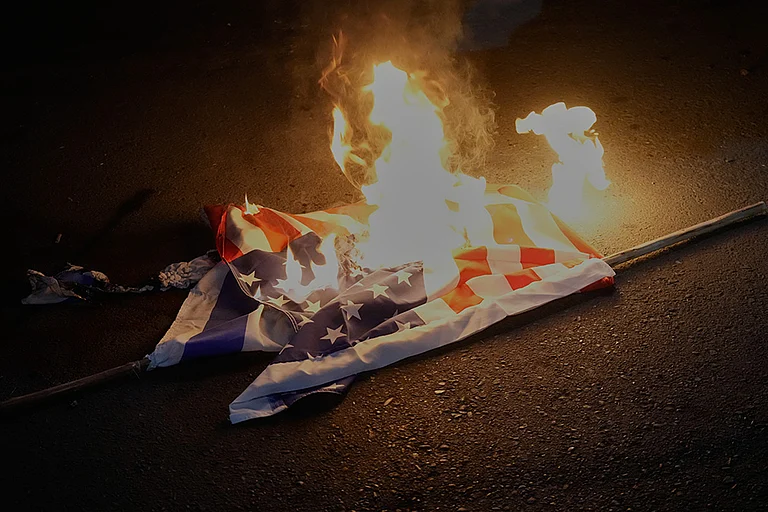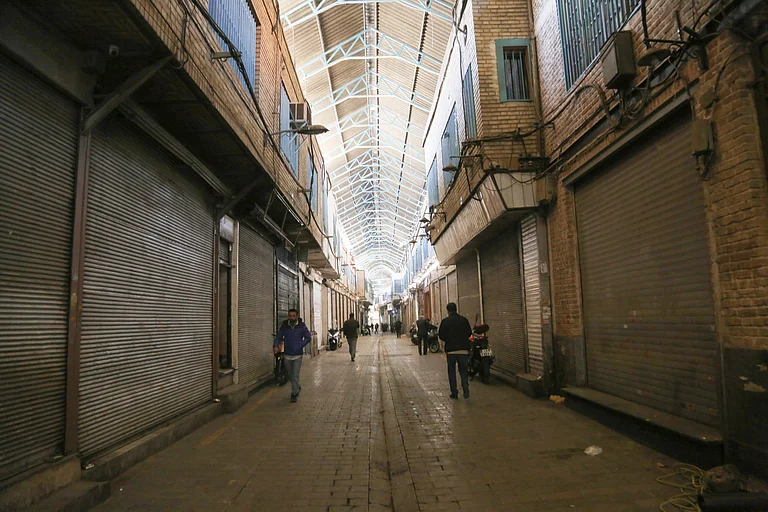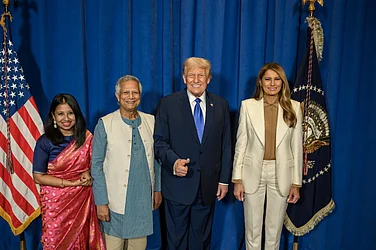On the evening of July 30, Masoud Pezeshkian, Iran's newly elected president, took his seat at the Sa’dabad Complex in Tehran with a vision of renewing nuclear negotiations and improving ties with the West. His inauguration, approved by Supreme Leader Ayatollah Khamenei on July 28, marked the beginning of a new era for Iran, raising hopes of a thaw in its relations with Western nations.
Pezeshkian, who has strongly advocated for the removal of sanctions, expressed his optimism about Iran's future. "My government will never succumb to bullying and pressure. Pressure and sanctions do not work, and the Iranian people should be spoken to with respect," he asserted. He also defended the 2015 nuclear deal, known as the Joint Comprehensive Plan of Action and vowed to work towards softening of sanctions.
However, within hours, tragedy struck. Around 2 am local time, Hamas political leader Ismail Haniyeh, a guest of Pezeshkian, was assassinated in Tehran. This incident sent shockwaves through the Middle East and beyond, highlighting the vulnerability of Iran's political landscape.
The assassination occurred amidst the presence of 110 foreign delegations, including leaders of the "axis of resistance", who were in Tehran for Pezeshkian's inauguration. This brazen attack not only exposed the security weaknesses of Iran’s Revolutionary Guard Corps (IRGC) but also underscored the precarious position of its diplomatic efforts.
Supreme Leader Ayatollah Khamenei described Haniyeh's assassination as a "bitter and difficult incident that happened in the territory of the Islamic Republic".
The Middle East has held its breath several times, but it looks like this incident has crossed a red line that could lead to inevitable military responses and further destabilisation.
Rear Admiral Daniel Hagari, the chief spokesperson for the Israel Defense Forces (IDF), stated that Israel was prepared for various scenarios amid heightened regional tensions. "The IDF is on high alert, on both defence and offence," Hagari said, indicating the potential for further escalation.
Experts suggest that the presence of moderates and reformists in Iran has posed a challenge to Israeli Prime Minister Benjamin Netanyahu, undermining the arguments against engaging with Iran. Has Netanyahu killed many birds with one stone?
The assassination of Haniyeh, especially on Iranian soil, has not only amplified calls for retaliation, but they shot down truce talks mediated by the US, Qatar and Egypt between Israel and Hamas as well as also larger plan of the West to reengage Iran.
Former Israeli National Security Council deputy head Eran Etzion commented that the assassination might be a strategy to derail ceasefire efforts between Israel and Hamas. He indicated that Netanyahu could be seeking a larger conflict, complicating the already fragile ceasefire plan structured in multiple phases, aimed at ending hostilities and rebuilding Gaza.
While President Joe Biden highlighted the significance of the ceasefire plan, which had been jeopardised by Haniyeh's assassination, many believe that Haniyeh’s killing may have some sort of green light from the US. They say that during his interactions in Washington, Netanyahu was told explicitly to wind up Gaza operations as soon as possible and declare victory after hunting down a few prominent leaders.
The ceasefire plan, which was divided into three phases, now, however, faces uncertainty. Phase one called for an immediate and comprehensive ceasefire and the release of hostages. Phase two aimed for a permanent end to hostilities and a full withdrawal of Israeli forces from Gaza. Phase three envisioned a major multi-year reconstruction plan for Gaza.
In the post-war scenario, Americans in league with Israelis and Arab allies had been discussing uniting the West Bank and Gaza under a joint leadership without Hamas and Mahmood Abbas. Figures like UAE-based Palestinian millionaire Mohammad Yusuf Dahlan, a former security chief with significant influence, and Marwan Barghouti, a popular Palestinian prisoner, have emerged as potential leaders who could shape the region's future.
Dahlan, known for his security expertise and close ties with UAE leadership, has been instrumental in regional diplomacy, including the Abraham Accords. Barghouti, despite being imprisoned, remains a symbol of resistance and unity among Palestinians. He had earlier fought pitched battles with Hamas.
The assassination of Haniyeh in Tehran has not only complicated Pezeshkian’s early presidency but also thrust the US into a challenging position as it seeks to prevent a regional war. Secretary of State Antony Blinken distanced the US from the assassination, emphasising the need for de-escalation.
As the US gears up for a presidential election, the uncertainty over its future leadership adds another layer of complexity to the situation. Analysts suggest that Netanyahu might be leveraging this uncertainty to maintain US support and continue his aggressive stance.
Brian Finucane, a senior adviser with the International Crisis Group’s US Program, believes that assassinations have complicated the truce talks if not derailed. To calm things down with the Houthis [in Yemen], with Hezbollah, and continue the lull in attacks on US troops in Syria and Iraq, all are linked to a ceasefire in Gaza.
The killing of Haniyeh has exposed the fragile nature of West Asian diplomacy and the intricate web of alliances and enmities that define the region. As Iran navigates this crisis, the world watches closely, hoping for a resolution that can bring lasting peace to a region long plagued by conflict.





























